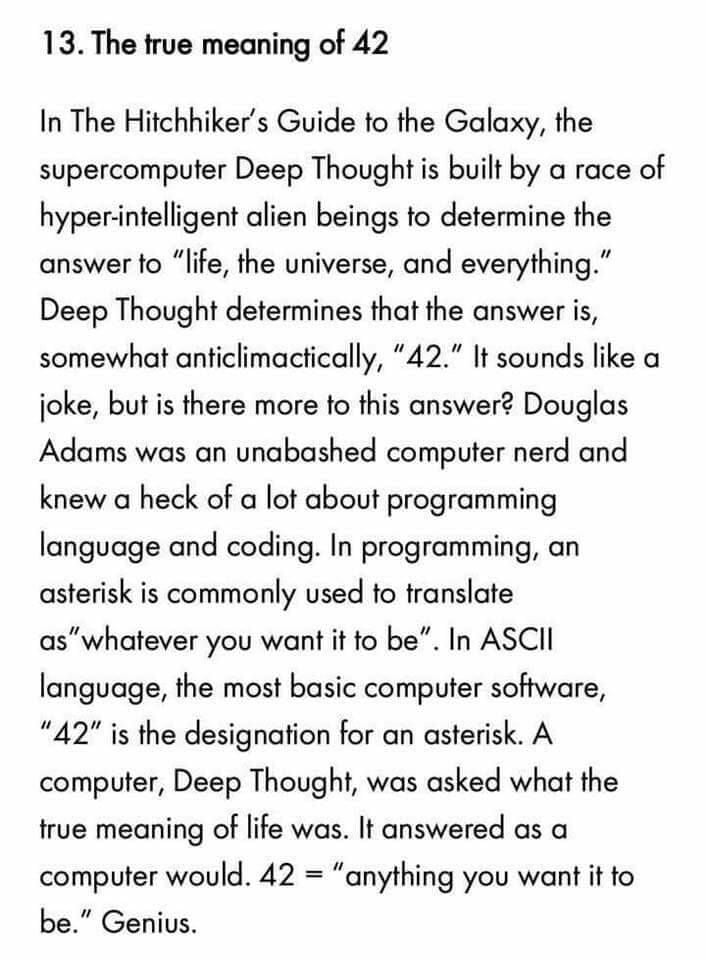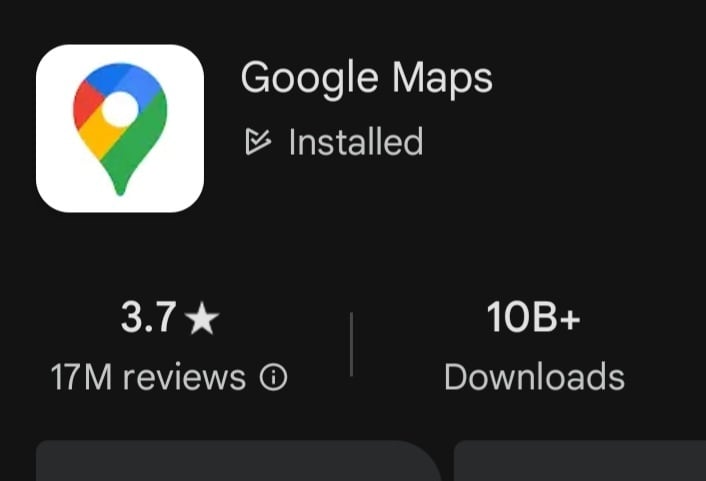Sorry if this is a dumb question, but does anyone else feel like technology - specifically consumer tech - kinda peaked over a decade ago? I’m 37, and I remember being awed between like 2011 and 2014 with phones, voice assistants, smart home devices, and what websites were capable of. Now it seems like much of this stuff either hasn’t improved all that much, or is straight up worse than it used to be. Am I crazy? Have I just been out of the market for this stuff for too long?
There was a lot of pioneering in the 70’s. The first home computers, the first video games, the first mobile phones, all right there in the late 70’s. Most people ended the 70’s living like they did in the 60’s but now there’s cool shit like the Speak n’ Spell. The average American home in 1979 had no microwave oven, a landline telephone and a TV that might have even been color. There were some nerds who had TRS-80s, some of them even had a modem so they could 300 baud each other. Normies saw none of this.
There was a lot of invention in the 80’s. Home computer systems, video games etc. as we now commonly know them crystalized in the 80’s. We emerged from the 80’s with Nintendo as the dominant video game console platform, Motorola as basically the only name in cellular telephones and with x86 PCs running Microsoft operating systems as the dominant computing platform with Apple in a distant but solid second place. Video games were common, home computers weren’t that out there, people still had land lines, and maybe cable TV or especially if you were out in the sticks you might have one of those giant satellite dishes. If you were a bit of an enthusiast you might have a modem to dial BBSes and that kind of stuff, but basically no one has an email address.
There was a lot of evolution in the 90’s. With the possible exception of the world wide web which was switched on in August of '91, there weren’t a lot of changes to how computing worked throughout the decade. Compare an IBM PS/2 from 1989 with a Compaq Presario from 1999. 3 1/4" floppy disk, CRT monitor attached via VGA, serial and parallel ports, keyboard and mouse attached via PS2 ports, Intel architecture with Microsoft operating system…it’s the same machine 10 years later. The newer machine runs orders of magnitude faster, has orders of magnitude more RAM etc. but it still broadly speaking fills the same role in the user’s life. An N64 is exactly what you’d expect the NES to look like after a decade. Cell phones have gotten sleeker and more available but it’s still mostly a telephone that places telephone calls, it’s the same machine Michael Douglas had in that one movie but now no longer a 2 pound brick. Bring a tech savvy teen from 1989 to 1999 and it won’t take long to explain everything to him. The World Wide Web exists now, but a lot of retailers haven’t embraced the online marketplace, the dotcom bubble bursts, it’s not quite got the permanent grip on life yet.
There was a lot of revolution in the 2000’s. Higher speed internet that allow for audio and video streaming, mp3 players and the upheaval those caused, the proliferation of digital cameras, the rise of social media. When I graduated high school in 2005, there were no iPhones, no Facebook, no Twitter, no Youtube. Google was a search engine that was gaining ground against Yahoo. The world was a vastly different place by the time I was through college. Take that savvy teen from 1989 and his counterpart from 1999 and explain to them how things work in 2009. It’ll take a lot longer. In 2009 we had a lot of technology that had a lot of potential, and we were just starting to realize that potential. It was easy to see a bright future.
There was a lot of stagnation in the 2010’s. We started the decade with smart phones and social media, and we ended the decade with smart phones and social media. Performance numbers for machines kept going up but you kinda don’t notice; you buy a new phone and it’s so much faster and more responsive, 4 years later it barely loads web pages and takes forever to launch an app because mobile apps are gaseous, they expand to take up their system. A lot of handset manufacturers have given up so now there are fewer options, and they’ve converged to basically one form factor. Distinguishing features are gone, things we used to be able to do aren’t there anymore. The excitement wore off, this is how we do things now, and now everyone is here. Mobile app stores are full of phishing software, you’re probably better advised to just use the mobile browser if you can, mainstream video gaming is now just skinner boxes, and by the end of the decade social media is all about propaganda silos and/or attention draining engagement slop.
Now we arrive in the 2020’s where we find a lot of sinisterization. A lot of the tech world is becoming blatantly, nakedly evil. In truth this began in the 2010’s, it’s older than 4 years, but we’re days away from the halfway point of the decade and it’s becoming difficult to see the behavior of tech and media companies as driven only by greed, some of this can only come from a deep seated hatred of your fellow man. People have latched onto the term “enshittification” because it’s got the word shit in it and that’s hilarious, but…I see a spectrum with the stagnation of the teens represented with a green color and the sinisterization of the 20’s represented with red, and the part in the middle where red and green make brown is enshittification.
From an old geek; spot on.
Feels the same with lot of other tech too: space voyage, cars & motorcycles, robots, most are just like last year with some small cosmetic change or 7% more of this or that.
Sure, things are getting better but it doesn’t feel like it does any more.
Edit: hey, Lemmy & the decentralised fediverse is quite cool new tech.
Nice summary! I’ve been here through that whole time period. If it had stopped at the stage around 1995-2000 (before FB & web 2.0 took over the internet, before every business model became about bombarding us with ads and spying on us), our lives would be much better today.
Dial-up could still be pretty exciting. Or at least for me.
I am just amazed by data transfer via sound. When I found SSTV I was amazed by the ability to transfer analog images by sound. I was playing around with it for hours for months. I can get amazed by random crap like that. I can hear the image as it’s being transferred. So cool!
But recently I was playing around with QSSTV and found HamDRM. Same thing, but digital. And it’s not only for digital images, it can take any binary file. Sadly, no Android apps for HamDRM unlike analog SSTV. So, I just saved it as wav, moved it to my phone and played it to my laptop.
Holy shit! I transferred a 55kB document in 5 minutes using sound! It just feels so crazy and awesome. It sounds basically like random noise, static, but there’s real data in it. If only there was an Android app to do this, I could play around it for hours transferring small data back and forth over the air, using sound waves!
But hey, I can even be excited by a large QR code. 2 seconds of 8kbps MP3 in a QR code, pretty cool!
Any websites or projects showing the 2 sec of audio in a QR code? Sounds cool!
Oh, I just simply used the data URI with base64-encoded MP3. It can be pasted directly into browser.
However, you could get far more with codec2, although it’s very much a speech only codec. It goes as low as 700bps. So… roughly 20 - 25 seconds the same way, although you’d have to use the codec2 decoder instead of browser.
Sample: https://www.rowetel.com/downloads/codec2/hts2a_700c.wav
“These days a chicken is a rare dish”Anyway, back to the MP3…

Just paste it into a browser.
- a lot of pioneering in the ’70s*
- right there in the late ’70s*
- Most people ended the ’70s* living like they did in the ’60s*
- a lot of invention in the ’80s*
- crystalized in the ’80s*
- We emerged from the ’80s*
- lot of evolution in the ’90s*
- a lot of revolution in the 2000s*
- a lot of stagnation in the 2010s*
- Now we arrive in the 2020s*
- In truth this began in the 2010s*
- the sinisterization of the ’20s*
But you got it right for “TRS-80s” & “August of ’91”!
I didn’t sign up for an English class this semester, and I’m certainly not paying tuition. You gonna pretend you didn’t understand what I meant?
To quote one of my favorite authors:
“I’ve come up with a set of rules that describe our reactions to technologies:
1. Anything that is in the world when you’re born is normal and ordinary and is just a natural part of the way the world works.
2. Anything that’s invented between when you’re fifteen and thirty-five is new and exciting and revolutionary and you can probably get a career in it.
3. Anything invented after you’re thirty-five is against the natural order of things.”
― Douglas Adams, The Salmon of Doubt: Hitchhiking the Galaxy One Last Time
This is the answer.
This is the answer.
I beg to disagree. The answer is 42. The real issue being: to what question? :p

would be nice, but isn’t true according to Douglas Adams himself:
Inspiration for the number 42
Douglas Adams revealed the reason why he chose forty-two in this message .
“It was a joke. It had to be a number, an ordinary, smallish number, and I chose that one. Binary representations, base thirteen, Tibetan monks are all complete nonsense. I sat at my desk, stared into the garden and thought ‘42 will do’”.
personally, i think it’s way funnier that it is actually, completely, deliberately meaningless ;)
Yeah but Facebook was invented when I was a teen and I knew pretty quickly that shit was evil.
At 15 the thing i wanted most in the world was an escape hatch from all these other assholes I had to spend my time with everyday at school. Right around that time Facebook arrived ensuring they would have more access to me and the people around me more then any other time in history.
I think new tech is still great, I think the issue is the business around that tech has gotten worse in the past decade
Agree. 15+ years ago tech was developed for the tech itself, and it was simply ran as a service, usually for profit.
Now there’s too much corporate pressure on monetizing every single aspect, so the tech ends up being bogged down with privacy violations, cookie banners, AI training, and pretty much anything else that gives the owner one extra anual cent per user.
What’s crazy is that they were already making unbelievable amounts of money, but apparently that wasn’t enough for them. They’d watch the world burn if it meant they could earn a few extra pennies per flame.
[off topic?]
Frank Zappa siad something like this; in the 1960’s a bunch of music execs who liked Frank Sinatra and Louis Armstrong had to deal with the new wave coming in. They decided to throw money at every band they could find and as a result we got music ranging from The Mama’s and The Papas to Iron Butterfly and beyond.
By the 1970s the next wave of record execs had realized that Motown acts all looked and sounded the same, but they made a lot of money. One Motown was fantastic, but dozens of them meant that everything was going to start looking and sounding the same.
Similar thing with the movies. Lots of wild experimental movies like Easy Rider and The Conversation got made in the 1970s, but when Star Wars came in the studios found their goldmine.
You know this happened with cars also, until there is a new disruption by a new player or technology - companies are just coasting on their cash cows. Part of the market cycle I guess.
I’ve been saying this for a while, and have estimated a similar 10-year time frame.
Most new tech (except for medical advancements) doesn’t really benefit the average person. Instead, it just gives corporations and governments more data, more control, and the ability to squeeze more money out of us. They don’t represent actual improvements to society as a whole or to individual users.
I’m in an area that uses Waymo a lot. My head exploded last year when I watched a driverless car make a left turn in front of me. 100% impressed that day.
SpaceX catching the super heavy rocket -that was also mind-blowing. Space tech tends to be what spurs in the tech we use ourselves, so I think the privatization of space travel has been a net good. We’ll have another explosion of tech over the next few years because of it
Not really peaked. More like we entered the era of diminishing returns which btw is great if you are not blinded by the marketing. Mid to low range phones are fairly cheap and more than adequate for almost anything . Do you know how shit even mid range phones were 10+ years ago and how fast they were getting too old to be usable. Right now its more than reasonable to use any smartphone for a 3 to 5 years and probably even longer ( before only champions like samsung Galaxy note 4 could even hope to match that ). Everything you talk about is cheaper and more afforable than ever before( if you do the usual and not buy overpriced brands beacuse of a brand like apple , galaxy phone , roomba robot vacuums etc… ). The only thing thats a shitshow right now are websites and computer prices precisly beacuse right now the current hype is LLM( which makes graphic cards really f expensive and kinda hits website by ricoshet due to the negative LLM influence ).
Actually even as smartphones go there is a progress. Folding phones. Coincidently they are less relaiable and not as long lived . Exatcly as smartphones were 10 years ago.
Also smartphones were something much grander than a simple tech innovation. They were truly a society changing innovation like cars, trains , planes or a computer. They just peaked much faster than cars , trains or planes. In fact they probably had bigger impact on society than computers.
Did they have this tech 10 years ago?

I rest my case
Where can i buy this?
The device called novint falcon, you might find it in eBay. You can get other haptic devices but usually the price range is higher.
I’m 22 and I feel the same way. 2012-2014 PC hardware was better and I do not care what anyone says. It’s probably the software that was better but damn nowadays my 6 core 12 threaded CPU feels so ass in any task compared to my old ass Pentium. I have 32 gigs of RAM and shit can still be slow and unresponsive. Games are poorly optimized because they just focus on making it pretty but it barely looks better. Best example is counter strike 2 vs CS:GO. I played csgo on integrated graphics then on a 1050ti game was always smooth and looked good. Now CS2 looks blurry even with taa off. Runs like shit and sure it looks better but not that much better for it to run how it does.
Edit: another example is vermintide 2. I upgraded my hardware since I played the 1st one but it runs way worse than the 1st one.
I used to customize my desktop like crazy with the dumbest 3D effects. I was on a Pentium using Ubuntu 14.04, integrated graphics. Now I can’t run discord and 3D effects without noticing the difference in performance.
Software is getting worse. Because it’s getting more and more complex. Now even basic things back then are rough to do now.
I don’t have proof or know enough to prove it but I can feel it.
Tech has definitely become worse since megacorps killed the little guys & sucked the fun out of everything. Open source & self hosting is becoming/has become the only way. So glad I taught myself how to do it
I just had to book a flight.
Frontier forces you to download an app now to check in (there is a well hidden option to do it on web, but the page never loads on laptop nor mobile in multiple browsers).
I tried to rent a parking spot, and 2/4 places would not load quotes at all (again web and mobile and multiple browsers). I probably would’ve used one of the two that didn’t load if their sites had worked. Their loss I guess.
I’d just like it to not feel like each interaction I have with technology, and I guess by extension the world, is becoming increasingly adversarial. The tech itself seems to keep getting better though.
It all went downhill when the expectation of an always-on internet connection became the norm. That gave us:
- “Smart” appliances that have no business being connected to the internet
- “Smart” TVs that turned into billboards we pay to have in our homes
- Subscription everything as a service
- Massive zero-day patches for all manner of software / video games (remember when software companies had to actually release finished/working software? Pepperidge Farm remembers)
- Planned obsolescence and e-waste on steroids where devices only work with a cloud connection to the manufacturer’s servers or as long as the manufacturer is in business to keep a required app up to date
- Every piece of software seemingly sucking up all the data it can about you and feeding it back to the mothership so you can be profiled and sold to advertisers
- Pretty much everything Apple does is designed to further lock you into their ecosystem and/or remove a port that’s standard in order to pocket the savings and sell you a dongle for $29.99
- Dwindling / disappearing availability of physical media you effectively own forever in favor of digital libraries that you only have a flimsy license to access at the company’s whim (even though you “bought” the title for the same price it would have cost on physical media). Those have been ruled non-transferable (e.g. if you want to leave them to someone in your will) and the company going under leaves you with no rights or ability to get a refund or physical copy of things you supposedly bought but can no longer access.
Other than hardware getting more powerful and sometimes less expensive, every recent innovation has been used against us to take away the right to own, repair, and have any control over the tech we supposedly own.
Edits: I keep thinking of more things that annoy me lol.
And to force subscriptions, ads and tracking, the tech is getting more and more locked down.
Not just flashing phones and wifi routers, but you may not even watch high quality video, even though you’re paying a subscription if your device’s HW and SW don’t conform.If something gets discontinued, it’s not just that it may be unsafe to use or be too slow for modern use, no, look at cloud-managed network gear. The company decides it’s a paperweight, and it is. And this is going to just extend further.
That was when innovation slowed down and rent-seeking increased, once the big players started exploiting their oiligopolies in earnest.
In my opinion as an engineer, methods like the VDI2206, VDI2221 or ISO9000 have done irreparable damage to human creativity. Yes, those methods work to generate profitable products, but by methodizing the creative process you have essentially created an echo chamber of ideas. Even if creativity is strongly encouraged by those methods in the early stages of development, the reality often looks different. A new idea brings new risks, a proven idea often brings calculable profits.
In addition to that, thanks to the chinese, product life cycles have gotten incredibly short, meaning, that to generate a constant revenue stream, a new product must have finished development while the previous one hasn’t even reached it’s peak potential. As a consequence, new products have only marginal improvements because there is no time for R&D to discover bigger progressive technologies between generations. Furthermore the the previous generation is usually sold along side the next one, therefore a new product can not be so advanced as to make the previous one completely obsolete.If you really want to see this with your own eyes, get a bunch of old cassette players from the 90s from different manufacturers. If you take them apart you can easily see how different the approaches where to solve similar problems back in the day.
Its called enshitification. Its a process that’s been happening in all areas of tech for a while now.
Feature per dollar possibly yes. Technology itself not necessarily.
The issue is the market was much more competitive 10+ years ago which led to rapid innovation and the need for rivals to keep up.
Today that no longer exists in so many areas so a lot of existing tech has stagnated heavily.
For example, Google Maps was a very solid platform in 2014 bringing in a ton of new navigation features and map generation tech.
Today, the most solid consumer map nav is probably Tesla’s map which utilizes Valhalla, a very powerful open source routing engine, that’s also used on openstreetmap and OSMAnd.
This is a very huge improvement from 2014 Google Maps.
Except the most used map app is still essentially 2014 Google Maps because Google cornered the market so they no longer have any need to innovate or keep up. In fact it’s actually worse since they keep removing or breaking features every update in an attempt to lower their cloud running costs.

You can apply this to a lot of tech markets. Android is so heavily owned by Google, no one can make a true competitor OS. Nintendo no longer needs to add big handheld features because the PSP no longer exists. Smart home devices run like total junk because everyone just plugs it into the same cloud backend to sell hardware. The de facto way to order things online is Amazon. Amazon is capable of shipping within a week, but chooses not to for free shipping to entice you into buying prime, and because they don’t have a significant competitor. Every PC sold is still spyware windows because every OEM gets deals with Microsoft to sell their OS package.
Even though the hardware always improves, the final OEM can screw it all up by simply delivering an underwhelming product in a market they basically own, and people will buy because there is no other choice or competition to compare to.
Steam deck: am I a joke to you
I actually hope Steam Deck’s success does force Nintendo to take them seriously, but at the moment their market share is much less overlapped because the Deck primarily offers PC games, even though Switch emulation is possible too.
Also the $400 entry model price would sound even more appealing if the Switch 2 comes put with a similar price. At that point Steam Deck is a steal lol.













